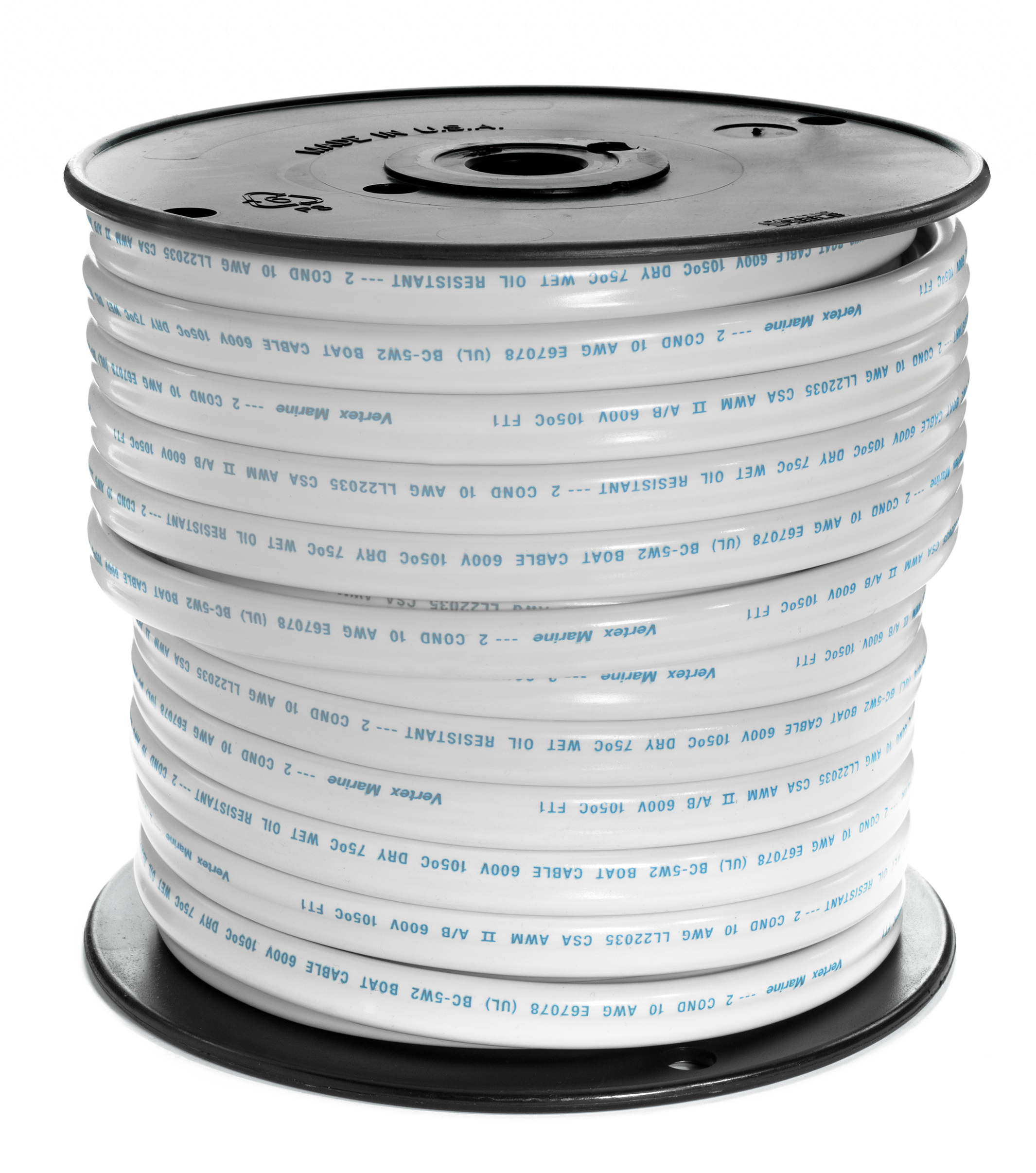When it comes to wiring in marine environments, you have to start with a new set of rules. The American Boat and Yacht Council (ABYC) has its own set of guidelines that differ significantly from wiring in terrestrial applications. Before you start your next marine wiring project, it’s important to reference these guidelines to ensure you are using the proper marine electrical wire and proper terminal connections to avoid the possibility of potentially catastrophic electrical failure. Knowing what to look for before you purchase your wire can help ensure that your boat is wired safely.

Marine environments have to deal with a lot of movement. Between the gentle rocking that experienced in your dock or harbor to the violent jarring when cutting through the waves, boats almost never standstill. Because of all this movement, it’s crucial to have flexible cables that can move without cracking their insulation or coming disconnected. In order to achieve this level of flexibility, marine electrical wires should use finely stranded conductors instead of a single solid copper core.
Though it is not officially frowned upon by the ABYC, using solid copper conductors for marine wiring can cause any exposed conductors to corrode. To avoid this corrosion, many manufacturers choose to make their marine cables using tinned copper. When you electroplate your copper strands with tin, the resulting conductor maintains excellent conductivity with a much lower reactivity. In marine environments where water and salt are common, these coated conductors will help avoid corrosion and will greatly increase the lifespan of your cables.
Another layer of protection that marine cables require is a high gradelayer of insulation. The engine room of a boat can contain water, gasoline, oil, abrasive surfaces, and other potentially corrosive substances. The PVCinsulationon your marine cables has to be able to stand up to any of these potentially damaging agents. If your insulaton is weakened by solvents like gasoline or oil it can break down, your cables can easily end up with exposed conductors and suffer from corrosion.
When you are installing your wires it is important to make sure you are using the correct terminals. All of the movement on boats can easily cause traditional terminals to vibrateloose. Terrestrial connections like wire nuts require at least one of the wires to feature a solid conductor, which makes them a poor choice for marine wiring. Instead, screw-in terminals should be employed for extra security. Wires should end in ring terminals and need to be securely crimped and secured with a shrink tube. This will create a remarkably stable connection that will not shake loose over time.
If you need the highest quality marine electrical wire, visit EWCS Wire today. We are an American manufacturer of high-quality wire and cable for a wide range of applications. Our marine wires and cables feature tinned copper stranded conductors and rugged insulators. If you are about to undertake a marine electrical project, be sure to review the ABYC guidelines and purchase quality marine wire from EWCS today.
Comments
Post a Comment